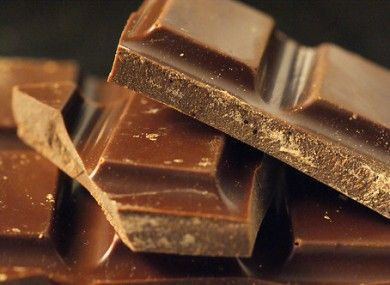Simple Healthy Eats: 8 Anti-Aging Foods That Help Fight Cancer And Heart Disease

We hear the word ‘antioxidant’ frequently these days, but with so many choices in different dishes and innovative restaurants, we often glaze over the simple, everyday foods that are plentiful in vitamins, nutrients, and cancer-preventing components. Alone or in addition to full meals, these bites and beverages could have a powerful effect on your overall health and longevity if eaten consistently in moderate amounts.
Dark Chocolate
Cocoa beans are densely packed with antioxidants, especially in dark chocolate rather than other forms of chocolate. “Cocoa beans fresh from the tree are exceptionally rich in flavonols,” a study published in the Journal of Cosmetic Dermatology in 2009 states. “Unfortunately, during conventional chocolate making, this high antioxidant capacity is greatly reduced due to manufacturing processes.”
The study also notes that cocoa flavonols might also offer significant anti-cancer properties similar to green tea. These compounds are being investigated further for anti-aging properties and “interestingly have been demonstrated in animal models to improve cognitive performance in aged individuals and increase lifespan.”
Berries
Most berries, especially those that are darker or bluer in color such as blueberries or blackberries, are very high in antioxidants as well. A study determined that eating blueberries or strawberries consistently could help prevent mental decline in women as they grow older.
"Given that we know that fruits and vegetables are good for our health in general, our findings add to the idea that we should be consuming more, especially berries, as a way to help maintain memory in older ages," said Elizabeth Devore, lead author and professor of medicine at Brigham and Women's Hospital and Harvard Medical School.
Green Tea
Tea is the second most widely consumed beverage in the world, second only to water. Green tea in particular is rich in antioxidants, and has been used in traditional Chinese and Indian medicine to aid in digestion and prevent heart disease. Due to its high level of polyphenols — antioxidant compounds which lend the tea its bitter taste — green tea offers antioxidants that might be higher than that provided by vitamin C.
However, drinking green tea prepared the old-fashioned way — as opposed to sugary green tea soft drinks — is the better route to take advantage of all the health benefits. The Food and Drug Administration (FDA) released warnings about the unsubstantiated claims made by manufacturers of many green tea-flavored beverages or other types of soft drinks. Manufacturers have advertised that some teas lower cholesterol, sans FDA approval. Nonetheless, researchers have noted regular green tea might prevent several types of cancers such those of the bladder, breast, ovarian, and colon, among other health benefits.
Fish
Salmon, herring, tuna, sardines, and other fish are loaded with omega-3 fatty acids, which can help prevent heart disease and can fight inflammation. Studies have shown that fish can reduce mortality rates, especially in people who have suffered a heart attack. Like meat, fish is high in protein — but in many ways it’s much better than other types of meat because it is not high in saturated fat, according to the American Heart Association. Fish is also good for your heart — omega-3 fatty acids can reduce the risk of arrhythmias, which are abnormal heartbeats that can have harmful consequences. The American Heart Association recommends eating fish at least twice a week.
Certain types of fish, mainly larger predatory fish such as shark, swordfish, contain higher levels of mercury and other environmental contaminants. Shrimp, salmon, canned light tuna, and catfish all have low levels of mercury. For older people in particular, the benefits of fish far outweigh the potential mercury risks.
Red Wine And Grapes
Drinking red wine — in moderation — could be good for both your heart and health. It’s filled with antioxidants and an anti-aging component known as resveratrol, which is also found in grapes and grape juice. Red wine has higher levels of resveratrol than white wine because the component is concentrated in grape skins, which are kept longer in red wine during the aging process. Resveratrol may reduce blood clots, decrease inflammation, and possess anti-cancer properties. Harvard researchers recently found that it can help slow the aging process.
Vegetables: Green, Leafy, And All The Others
The old adage is true: all sorts of veggies are good for you. Broccoli, carrots, spinach, asparagus, kale, you name it — whether you cook them or eat them raw, they are rich in antioxidants and protect against harmful UV exposure. On top of that, they are high in vitamins such as vitamin A, K, C, and E.
Olive Oil
The oldest person ever recorded, a French woman named Jeanne Calment, attributed her longevity to pouring olive oil over much of her food and even her skin. Calment, who also ate chocolate and drank port wine consistently, lived until she was 122 years old.
Like green tea, olive oil also contains polyphenols. Researchers are investigating the benefits of olive oil for improving memory and cognitive function, as well as digestive health. According to Olive Oil Source, rubbing extra virgin olive oil onto your skin could improve the condition of your skin as well. "What many consumers don't realize is something that people living millennia ago in ancient Greece took for granted; that extra virgin olive oil, all by itself, is one of the best beauty secrets," the site states.
Yogurt
Greek yogurt has recently become widely popular, and for good reason. It contains "friendly bacteria," or probiotics, which are already naturally present in the digestive system. While more research is needed to confirm, some studies have investigated the potential of yogurt to improve the immune system and assist digestion. It's also filled with protein and calcium, and in its plain, low-fat form could be an excellent addition to your usual diet.



























